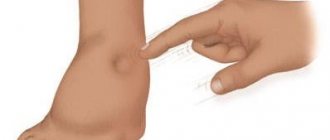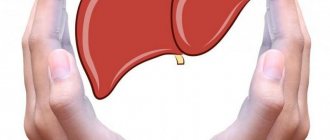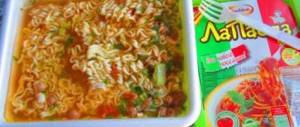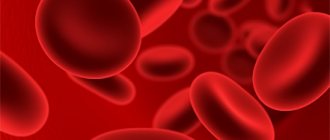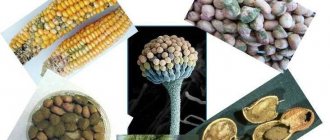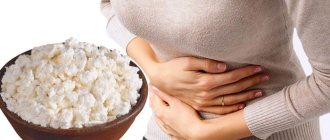Our body mainly consists of water. But this does not mean at all that the more water it contains, the better. A sharp increase in the volume of intercellular water space affects our well-being: edema, swelling and bloating appear (for example, in the abdomen). Swelling of various parts of the body and bloating is a fairly common problem, and it can occur for the following reasons:
- the nature and mode of our diet
- sedentary lifestyle
- the presence of chronic or acute diseases (for example, obesity or varicose veins)
- smoking and alcohol
- hormonal changes (2nd half of the menstrual cycle and pregnancy)
Looking at this list, it becomes clear that almost half of the reasons for the violation of our water-salt balance are bad habits , such as poor diet, physical inactivity, addiction to smoking or alcohol1, which are quite easy to eliminate. It is worth changing your lifestyle and eliminating certain foods from your diet , and you will forget about situational (not chronic) swelling, bloating and other unpleasant sensations associated with overhydration.
While many people are aware of the negative effects of smoking, alcohol and physical inactivity on water retention in the body, not everyone knows how important the role of nutrition is in eliminating the causes of occasional swelling. As for chronic swelling (caused by chronic diseases), its treatment is associated with the treatment of the disease itself, although even in these cases the diet and diet cannot be completely written off.
Today we will take a closer look at situational swelling and talk about what foods should be excluded in order to get rid of this common problem, even among healthy people.
Causes of fluid retention in the body
Fluid in the body in adults and children is retained for several reasons.
The main one is considered to be an imbalance of electrolytes (potassium, magnesium, sodium, calcium) in cells and tissues, which often occurs during poisoning. Such elements are necessary for the normal functioning of all internal organs. When the level of electrolytes changes up or down, a disruption in metabolism occurs and the composition of the blood changes. Sodium and potassium are responsible for the exchange of water and salts in the body. The first element delays it, the second brings it out. With excess sodium and insufficient potassium intake, water retention occurs in the tissues.
Humans get sodium mainly from salt. Therefore, consuming an increased amount of such a product causes swelling.
Another reason for fluid retention is eating foods with a high glycemic index. Water is not excreted in the required amount and accumulates in tissues when insulin levels in the body are high. In this case, there is an increased production of a specific hormone - aldosterone, which prevents sodium from leaving the cells.
Fluid retention occurs when consuming foods from two main groups. It is recommended to know more about each of them.
Chicken
Rice and chicken constitute the daily diet of almost all athletes in the world. White chicken meat is considered a healthy, dietary product and usually does not contain any harmful substances. And yet, Polish researchers turned to this product, having recently received a lot of negative reviews from consumers. Among other things, they indicate that after eating chicken meat, it becomes increasingly difficult for people who have been involved in sports to remove excess fluid from their bodies. Scientists from the National Foundation for Public Health, operating at the Vincent Pohl University of Social and Natural Sciences in Lublin, have found that modern chicken meat contains a huge amount of sodium - 100 - 180 milligrams per 100 grams of product, depending on the manufacturer. And this despite the fact that the permissible amount of sodium intake in an adult should not exceed 2300 milligrams, taking into account all foods eaten per day. It is known that excess sodium in the body causes the accumulation of excess fluid in the tissues. Thus, Polish scientists concluded that modern chicken meat is no longer a dietary product intended to maintain good physical shape.
«>
What foods retain fluid?
The first group of products includes foods with a high sodium content. The most popular substance is table salt - sodium chloride. This compound is present in most dishes of plant or animal origin.
In such food, the amount of salt is low; when consumed, the body receives a strictly required amount of this substance. However, many manufacturers use specific compounds that contain sodium. Substances are specially added in large quantities to products to enhance their taste.
- Monosodium glutamate – enhances taste.
- Sodium saccharin - used instead of sugar.
- Sodium benzoate – helps extend shelf life.
- Sodium bicarbonate is baking soda, used in baking.
- Sodium nitrite – improves the appearance of the dish.
Unfortunately, manufacturers add large amounts of such additives to food. When you eat food, your body receives a multiply increased dose of sodium. As a result, an overdose occurs and metabolism is disrupted.
The second group includes foods with a high glycemic index. These are foods that, when consumed, cause a sharp increase in insulin in the body. The synthesis of the hormone aldosterone, which retains sodium, is also accelerated. As a result, fluid accumulates in tissues and cells and swelling occurs. What products are included in this group?
- chocolate, sweets, baked goods;
- baking;
- dried fruits;
- any bakery products;
- potato.
It is recommended to limit such foods in the diet to people who are overweight and have constant swelling. Dairy products with increased liquid also provoke accelerated production of the hormone. Therefore, it is not recommended to abuse them.
Drinks that retain water in the body
Some drinks do not provoke fluid withdrawal, but its retention. Therefore, it is necessary to limit their use. What drinks should you drink with caution?
- sweet carbonated water;
- beer;
- coffee with sugar;
- alcohol.
Coffee in minimal quantities has a diuretic effect, however, when the product is consumed with sugar or in large quantities, the opposite effect occurs. Fluid is retained in the body.
Alcoholic drinks remove fluid well. However, with constant use, they provoke an imbalance of water and salts due to intoxication. To cleanse the body of alcohol toxins in case of an overdose, a lot of fluid is required. As a result, it accumulates in the space between the cells, which leads to the development of swelling.
Alcohol
Even a small amount of alcohol helps retain fluid in the body6. Its effect is similar to that of caffeine: at first, alcohol (any alcohol, including beer) acts as a diuretic, and while you drink, you often run to the toilet. But the next day, the body begins to retain water, as if compensating for yesterday’s loss caused by your frequent “excursions” to the toilet.
If frequent swelling is your problem, try to drink alcohol (including wine) as rarely as possible, and on holidays, do not forget to drink more clean water (we have already mentioned the dangers of sweet juices, colas and mineral waters here)
How to deal with swelling
You can get rid of swelling caused by food by reviewing your entire diet. Unfortunately, you won’t be able to completely give up some foods. Therefore, it is better to adhere to preventive rules that will help reduce the risk of fluid retention in the body.
- It is recommended to consume at least one and a half liters of clean drinking water per day. This will provide the body with the required amount of fluid and eliminate the need for its accumulation.
- Exercising and walking in the fresh air speeds up your metabolism. The functioning of the excretory systems improves, the fluid is not retained, but is eliminated faster.
- To quickly get rid of excess water, baths and baths with sea salt and soda will help.
- It is recommended to limit salt intake and use less spices in cooking.
- It is better to include more foods high in fiber and potassium in your diet. Such substances reduce the risk of fluid retention in the body.
- Fresh juices of carrots, cabbage, and beets have diuretic properties.
- Fasting days help with fluid retention well. At such times, it is better to eat apples, kefir, milk, and tea.
It is prohibited to use diuretic drugs for treatment on your own. If medications are used incorrectly, the development of negative consequences cannot be ruled out. Therefore, any remedy must be agreed upon with a medical professional.
Method six: unload
Experienced fighters against edema know: to prevent stagnation, you need to do fasting days once a week. Here are the three most effective:
On milk tea. This magical drink is prepared simply: add a couple of tablespoons of high-quality green tea to two liters of milk, almost brought to a boil. Let the drink brew for half an hour and drink as often as your body requires. On kefir. Excess fluid is retained in the body - what to do? The answer is simple: buy a liter of one percent kefir and drink a little every couple of hours. One day of such a diet - and the swelling is gone! With pumpkin juice. You can use a pure product, you can mix it with another juice (for example, from carrots or apples), you can dilute it with water - there is no difference. But when mixing, the main thing is not to overdo it: there should be as much pumpkin juice as possible, because it is what removes excess water.
Another way to cope with swelling is to indulge in “beauty porridge”.
Boil oatmeal in water, if desired, add fruits and spices (for example, cinnamon, which also speeds up metabolism) - and go to a slim figure! Remember: under no circumstances should you add salt and sugar to this porridge.
To summarize: if fluid is poorly removed from the body, you need to look for the reasons in yourself. Pay attention to your diet, level of physical activity, and amount of water consumed.
Chances are the problem is easier to solve than you think.
Fluid retention in the body is the body’s ability to regulate its protective functions. Excess water causes swelling, which most people experience as bags under the eyes or swollen limbs. In addition, it can cause excess weight, adding extra pounds.
Excess water in the body can appear due to poor diet, sedentary lifestyle, excessive alcohol consumption and demonstrate that a person has a problem with the cardiovascular system or kidneys. It is necessary to remove excesses to improve overall well-being and normalize organ function. To lose weight using diets, fluid is removed first, and in just a few days you can lose up to 3 kg of weight.
Products and vitamins that remove fluid
What to eat to prevent swelling? There is a list of foods whose consumption will help prevent fluid retention. These are various fruits and vegetables, herbal drinks.
- green tea;
- hibiscus;
- dried apricots;
- raisin;
- cranberry;
- wheat bran;
- various nuts;
- bananas;
- jacket potatoes;
- cucumbers;
- zucchini.
It is useful to drink tea from chamomile, lingonberry leaves, and blueberries. Watermelon and melon have diuretic properties. It is recommended to include buckwheat and rice porridge, lettuce, tomatoes, and herbs in your diet.
It is recommended to include foods rich in vitamin B6 in your diet: red meat, salmon. Low-fat dairy dishes and fruits contain beneficial elements B1, B5, D. It is important that the body receives calcium, magnesium and potassium - substances that stimulate the removal of excess fluid.
Irritation, a feeling of sand in the eyes, redness are only minor inconveniences with impaired vision. Scientists have proven that decreased vision in 92% of cases ends in blindness.
Crystal Eyes is the best remedy for restoring vision at any age.
Features of cleansing with rice at home
An important nuance of using rice for cleansing is the complete avoidance of salt. It is advisable to limit, or better yet completely eliminate, the consumption of alcohol, meat products, smoked foods, fatty and spicy foods. After eating rice at breakfast, you may feel very hungry, which is caused by avoiding salt. To improve the cleansing effect, you can eat 1-2 apples, and an hour later eat rice.
The immediate removal of salts and toxins begins after about 30 days of using rice. In this case, the urine becomes cloudy. After the completion of the “rice” cleansing, the removal of salts and toxins will continue for about three months.
After two weeks of using rice, the feeling of hunger between meals will become almost unbearable. Weakness, dizziness and general malaise are common symptoms. This is due to the loss of heart-healthy potassium due to the general removal of salts. To replenish potassium reserves, your daily diet must include potatoes, cereals, dried apricots, raisins, nuts, tea with honey, and apple cider vinegar.
In some cases, pain in the joints, legs and buttocks may occur. You may feel discomfort in the spine or lower back. If such symptoms appear, you should not stop eating rice; on the contrary, this indicates that the body has begun to cleanse itself.
Some people feel the effects of rice after a few days of using it, and sometimes the effect is not felt even after 40 days. The results of rice cleansing depend on the individual characteristics of the body and the level of its slagging, but in any case it is undesirable to interrupt the cleansing course.
Where does swelling come from?
To determine the exact causes of swelling, medical diagnosis is required. There are several different factors that cause fluid retention. What should you pay attention to?
- More fluid is consumed than the body is able to remove. Often occurs when there are disturbances in the functioning of internal organs.
- Sedentary lifestyle.
- Use of certain medications.
- Uncomfortable clothes and shoes.
Edema can be caused by insufficient water intake. The body, experiencing a shortage, begins to accumulate reserves, which leads to fluid retention.
You can get rid of unpleasant symptoms (swelling) by changing your diet. It is recommended to exclude products that retain liquid. If severe swelling occurs, you should contact a medical professional.
conclusions
The procedure for cleansing the body with rice is currently very popular, so you can read many reviews about its effectiveness. However, no matter how enthusiastic they may be, it is still worth consulting with a specialist before starting this process.
It is also important to understand that you cannot expect results within a few days. You can see the first positive changes only after two weeks of regular consumption of grains. It is very important to strictly follow the instructions for preparing and consuming rice grains.
In addition to cleansing, there are also various variations of the rice diet , which can be practiced for weight loss. In general, cleansing with rice is a fairly gentle and at the same time beneficial procedure for the body.
Education: Graduated from Rivne State Basic Medical College with a degree in Pharmacy. Graduated from Vinnitsa State Medical University named after. M.I. Pirogov and internship at his base.
Work experience: From 2003 to 2013 – worked as a pharmacist and manager of a pharmacy kiosk. She was awarded diplomas and decorations for many years of conscientious work. Articles on medical topics were published in local publications (newspapers) and on various Internet portals.
To maintain health and youth for many years, the proper functioning of the body is necessary. The most accessible method of healing is to cleanse the body of waste and toxins. One of the popular ways is to cleanse the body with rice.
What foods retain water in the body?
Excessive accumulation of fluid leads to the development of pathological processes in the body. There are many reasons that provoke the occurrence of this condition. In this article we will talk about water balance, foods that retain water in the body, and how beneficial fast carbohydrates are.
Violation of optimal water balance poses a serious problem for human health. The body begins to work under increased stress. If no measures are taken, the person begins to get sick.
General information
Rice peeling has been used since ancient times: rice was used for this purpose in Ancient China. After all, it helps to successfully cleanse the body of waste, toxins , and also allows you to rid the joints of salts deposited in them. Preventive cleansing of the body with the help of rice began to be practiced in ancient times in Asia. In Eastern medicine, there is a belief that with regular consumption of this grain you can significantly improve your health, especially if you prepare it correctly. It has long been used by Tibetan monks. This Tibetan cleansing is still successfully practiced. Proof of this is the health of Tibetan monks, many of whom live more than a hundred years. Since the grains of this crop have an excellent absorption effect, they cleanse the intestines and liver well. In general, such cleansing is beneficial for various systems and organs. However, there are certain restrictions and contraindications for using such a cleansing system. How to use rice for weight loss and cleansing, and which recipe is best to choose, will be discussed in this article.
Water balance value
To maintain the optimal volume of fluid, a person must follow the correct drinking regime. This concept defines the ideal balance between the flow and flow of water into the body. A person should consume about 50 ml of water per kilogram of body weight per day. It is also necessary to take into account weather conditions and health conditions. Water balance depends on the amount of water consumed, as well as its excretion. The latter is carried out by the urinary system and sweat glands. Why is water retained in the body, you ask? Some foods can cause water imbalance, which leads to fluid accumulation and the development of a number of pathological processes.
Products retain liquid
Foods high in sodium chloride, creatine and caffeine lead to fluid accumulation. Contrary to popular belief, foods that retain water in the body can be not only salty and sweet. Lovers of very sweet tea and coffee should pay attention to increased insulin levels, since this hormone promotes fluid retention. Drinking alcoholic beverages leads to water retention.
Salt containing products
For normal human life, the body needs sodium chloride. Salt not only retains water, but is also a supplier of vital ions. An excess or deficiency of this substance is equally harmful to humans. Most food products contain sodium chloride, even if at first glance they do not taste salty.
Most salt is found in prepared foods, which contain preservatives, dyes, and other food additives. Such as: sausages, chips, mayonnaise, ketchup, marinades, pickles, crackers, smoked foods and other instant foods.
Sauerkraut
It is impossible to imagine a dinner table in the cold season without sauerkraut. This dish is not only tasty, but also very healthy. However, if you have hypertension and kidney pathology, consuming this dish is strictly prohibited. Sauerkraut contains a large amount of salt, which can cause edema or a hypertensive crisis.
Daily salt intake
For the average adult, the daily requirement is approximately 15 grams. Note! The daily requirement includes sodium chloride, which is found in food. Scientists have calculated that products for daily consumption contain about 10 grams of the substance. From the above information it follows that a person needs no more than 5 grams of salt per day for normal life support.
Sodium chloride is necessary to maintain acid-base balance in the body. People who consume salt in excessive quantities can cause serious harm to their health. Excess of the substance contributes to active water retention, which leads to exacerbation of chronic diseases of the cardiovascular, urinary and endocrine systems. If a person has been diagnosed with the above diseases, then he needs to reduce his salt intake to 1.5 grams. Some patients with hypertension who completely eliminated salt from their diet managed to stabilize their blood pressure. The daily dose of sodium chloride can be obtained from commercially prepared food. This refers to the following food additives: E339, E301, E211, E401, E500.
Creatine and water release
Supporters of a sports lifestyle use creatine to improve muscle growth and increase endurance. If you follow the dosage (no more than 25 grams/day), then this substance is safe for health. Creatine can be partially synthesized in the human body. The food additive is found in small quantities in meat and fish products. When consumed in excess, creatine retains water. The volume of excess liquid can reach 2 liters. Edema resulting from excessive consumption of creatine cannot be removed with the help of diuretics and reducing the drinking regime. This will not only not bring the desired effect, but will also cause dehydration, since all the water will be used to increase muscle mass. In order to restore water and electrolyte balance, a person will need to drink 3 liters of water per day.
The effect of coffee on water balance
It is quite difficult to answer the question of whether coffee retains water in the body, since the physiological effect of the drink depends on many factors. Coffee retains water in the body; if you drink less than three cups a day, it leads to the formation of edema. Excessive consumption of sweet drinks has a diuretic effect. For these reasons, pregnant women are strictly prohibited from drinking coffee.
Dairy
As a result of numerous studies, scientists have found that milk, cottage cheese and other fermented milk products retain fluid. The leading cause of this phenomenon is the release of insulin. Increasing the concentration of pancreatic hormone increases the production of aldosterone. This substance retains sodium chloride. For quick recovery after excessive physical activity and training, nutritionists recommend consuming dairy products.
Toxins and water retention
Alcohol, medications, and other toxic compounds slow down the removal of fluid from the body. The body perceives all of the above substances as poisons and therefore tries to neutralize them. The protective mechanism is aimed at dissolving and reducing the negative impact on humans.
Yogurt
Yogurts, as you know, do not contain lactose, but recently lovers of these products have also begun to notice swelling on their bodies. Israeli scientists from the Weizmann Multidisciplinary Research Institute became interested in why such negative consequences appear after such a healthy meal. They conducted routine testing on more than a dozen samples of very popular European, as well as less expensive, local yogurt products, and noticed a general trend. Almost all manufacturers began to use modified starch instead of natural starch as thickeners. However, such a substance not only retains water in the body, but also often causes fermentation in the intestines. This does not cause serious harm to the body, but such a product can no longer be called useful. For people seeking to lead a healthy lifestyle, it is now better to exclude any yoghurt from their diet. Modified starch is much cheaper than its natural counterpart and it is not surprising that due to the widespread economic crisis, many global manufacturers have changed the composition of their products.
Fluid removal products
You can quickly and safely get rid of excess fluid at home with the help of nutrition. Water removal is facilitated by eating foods high in fiber and B vitamins:
- Fruits: watermelon, melon, viburnum, avocado, banana, blueberry, strawberry.
- Vegetables: cabbage, asparagus, tomatoes, cucumbers, zucchini, pumpkin, beets, sweet peppers.
- Cereals: buckwheat and wheat bran.
- Decoctions made from chamomile, centaury, chicory, lemon balm and calendula.
- Hibiscus or green tea
Vitamins and fluid secretion
Poor nutrition leads to a deficiency of vitamins and minerals. Hypovitaminosis contributes to fluid retention in the body. Daily consumption of such foods will help compensate for the lack of vitamins and minerals:
- veal, red fish and bananas are rich in vitamin B6;
- vegetables, fruits, dairy and fermented milk products contain high amounts of vitamins B and D;
- oranges, lemons, tangerines, parsley, dill and spinach are high in Mg and K.
Pure water
Maintaining the correct drinking regime will help get rid of excess fluid. It is better to use clean, non-carbonated water than juices, teas and compotes that contain large amounts of sugar. To cleanse the body of toxins, nutritionists recommend drinking warm water in the morning.
Bone broth
This is an extremely healthy, nutritious product. Bone broth contains the amino acids glycine and proline. These are the main components of collagen, which makes up cartilage and connective tissue. All the beneficial substances in bone broth are absorbed as quickly as possible.
With its help, water is removed from the body gently. The main component of bone broth is gelatin, which attracts and retains liquid and promotes good digestion. The dish strengthens the immune system, so it is useful to eat during illness.
Preventing fluid accumulation
Regular exercise and proper nutrition are the best prevention of fluid accumulation. Every person must maintain a drinking regime and consume at least 1.5-2 liters of water per day. Nutrition must be correct and rational. Foods high in sugar and salt should be avoided. Instead of sweets, you can eat dried fruits in small quantities. If nutritional correction and an active lifestyle do not help solve the problem with swelling, then you need to seek help from a doctor. It is strictly forbidden to take diuretics or herbal remedies on your own. Uncontrolled use can cause dehydration and other complications.
